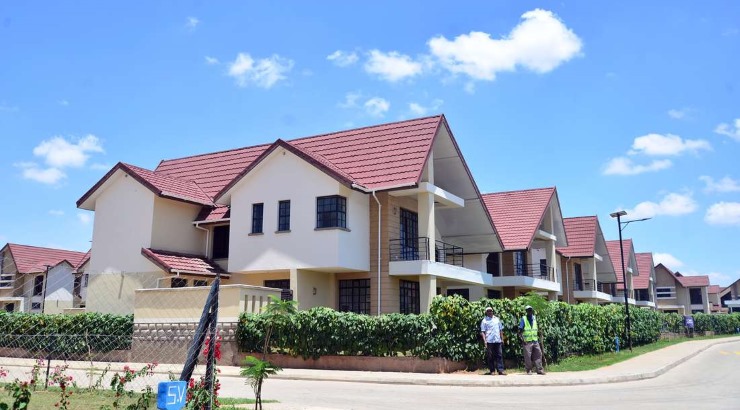Residential Projects
Why Builders Are Once Again Betting on Local Real Estate
Analysts expect real estate investment in Kenya to pick up in the coming months.

Nairobi has seen a new wave of big-dollar real estate construction over the past few months as investors have ventured out to undertake ambitious projects across the city.
Consonance Kuramo Special Opportunities Fund I, a subsidiary of New York-based Kuramo Capital, Cool Breeze Development Limited, and the United Bank of Africa are among developers planning to build property targeting middle to high-income earners.
Karumo is set to invest Sh20 billion over the next five years to build 10,000 student hostels and 7,500 affordable houses targeting youths and middle-income families in Nairobi and other major towns.
The developer appears keen to cash in on the high returns in the real estate sector as well as the widening student housing gap that has rendered universities, both private and public, totally incapable of accommodating most of their students.
Official statistics show that the 31 public universities in the country can only accommodate 25 per cent of their students – forcing many learners to seek alternative accommodation.
This has provided a huge opportunity for private developers who have been building hostels near universities to house learners who cannot find shelter within their campuses.
Cool Breeze Development Limited, owned by a group of Nairobi investors, is also making a foray into the city real estate market. The company last month unveiled plans to build five 14-floor apartment blocks off Mombasa Road in Nairobi in a bid to house 524 families.
RELATED: US Equity Firm to Invest Sh45bn in Kenya Real Estate
The Sh1.5 billion project, which is fully funded by the group, will comprise 120 studio apartments, 240 one-bedroom apartments, 148 two-bedroom units and 16 three-bedroom units – all sitting on 2.5 acres behind Nextgen Mall.
The Federation of Kenya Employers (FKE), which represents the collective interests of employers in Kenya, has also unveiled plans to put up an eight-storey head office building on Agwings Kodhek Road in the Upper Hill district of Nairobi.
FKE is investing in Upper Hill despite reports of an office oversupply and low demand, which have forced landlords to lower rents and issue shorter leases, leading to losses and reduced asset value.
Outside Nairobi, the United Bank of Africa (UBA) Bank, which operates in 20 African countries including Kenya, is funding the construction of 1,000 affordable houses in Kakamega County in partnership with the National Housing Corporation.
The funding is estimated to be upwards of Sh300 million.
Antony Kuyo of Avent Properties attributes the boom to the stable political climate after President Kenyatta and Raila Odinga’s unity pact, which has encouraged investors to launch projects.
Analysts expect real estate investment in Kenya to pick up in the coming months, with both local and foreign firms investing in the sector.
“We expect the real estate sector to maintain the expansionary trend due to the high returns from the industry averaging at over 24.3 per cent as of December 2017,” Cytonn Investments said in a recent report.
Renewed interest in property investments comes at a time when the government is seeking to build a million low-cost housing across the country to ease the housing deficit that stands at 1.85 million units.
The government has laid out an elaborate low-cost housing strategy that seeks to bring into the market new homes going for as little as Sh500,000.
According to Transport Cabinet Secretary James Macharia, the State will provide land to private investors who will then take advantage of various building technologies and economies of scale to deliver “truly affordable” homes for citizens.
This comes amid recent revelations that house prices in the country have recorded a ten-fold rise in the past seventeen years – pushing a majority of Kenyans into slums.
Kenya has enjoyed a construction boom for the past decade as property developers rush to keep up with a fast-rising population and an increasing demand for urban housing.














